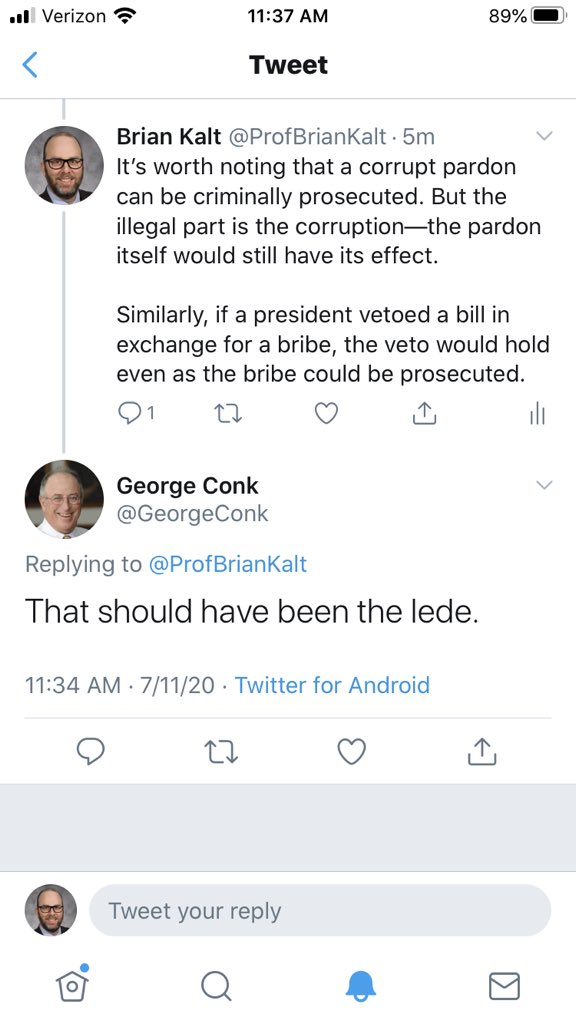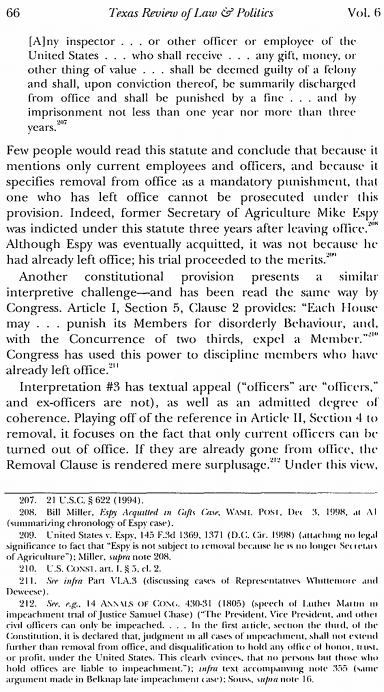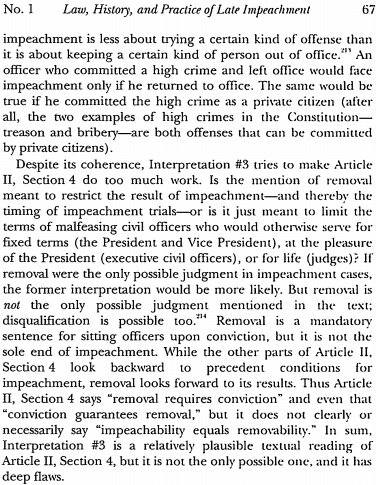I see confusion on Twitter about pardons b/c of Roger Stone. Here's a thread—tell a confused friend.
This is for those who
1) didn't think Trump had the power to do this (wrong); or 2) think he shouldn't have it (misses some points).
("Pardon" here means pardon OR commute)
1/7
This is for those who
1) didn't think Trump had the power to do this (wrong); or 2) think he shouldn't have it (misses some points).
("Pardon" here means pardon OR commute)
1/7
* "I thought impeached presidents can't pardon anyone"
Impeachment by itself does nothing to a president's powers. Only a conviction affects them. It's all or nothing.
Trump pardoned several people back in February, and Clinton and Johnson pardoned plenty post-impeachment.
2/7
Impeachment by itself does nothing to a president's powers. Only a conviction affects them. It's all or nothing.
Trump pardoned several people back in February, and Clinton and Johnson pardoned plenty post-impeachment.
2/7
* "I thought impeached presidents can't pardon people for crimes that the impeachment was about"
A widely tweeted column confidently claimed this, and there is an impeachment exception to the pardon power. But the standard interpretation of that exception is that pardons…
3/7
A widely tweeted column confidently claimed this, and there is an impeachment exception to the pardon power. But the standard interpretation of that exception is that pardons…
3/7
…just can't stop or undo the impeachment process itself; related criminal consequences are still pardonable. Moreover, Stone's crimes were connected very indirectly (if at all) to the impeachment.
* "Maybe the standard reading is wrong"
OK, but lots of evidence supports…
4/7
* "Maybe the standard reading is wrong"
OK, but lots of evidence supports…
4/7
…the standard reading. Regardless, the alternative view is unlikely to be tested in court.
* "Impeached presidents should lose their pardon power"
Imagine the president is from your party and the House isn't. Still OK with House majorities stripping presidents of powers?
5/7
* "Impeached presidents should lose their pardon power"
Imagine the president is from your party and the House isn't. Still OK with House majorities stripping presidents of powers?
5/7
* "Presidents should not be able to pardon co-conspirators"
Such actions (e.g., Weinberger, McDougal, Stone) are objectionable, but the Framers knowingly accepted that risk. Rather than restrict pardons, they chose to rely on Congress and the impeachment process.…
6/7
Such actions (e.g., Weinberger, McDougal, Stone) are objectionable, but the Framers knowingly accepted that risk. Rather than restrict pardons, they chose to rely on Congress and the impeachment process.…
6/7
…That reliance now seems misplaced. But it's part of a larger structure: the voters get their say in 35 Senate races this fall.
For better or worse, that's our system. Amending the Constitution to change this (or other problems with the pardon power) is not in the cards.
7/7
For better or worse, that's our system. Amending the Constitution to change this (or other problems with the pardon power) is not in the cards.
7/7
• • •
Missing some Tweet in this thread? You can try to
force a refresh







